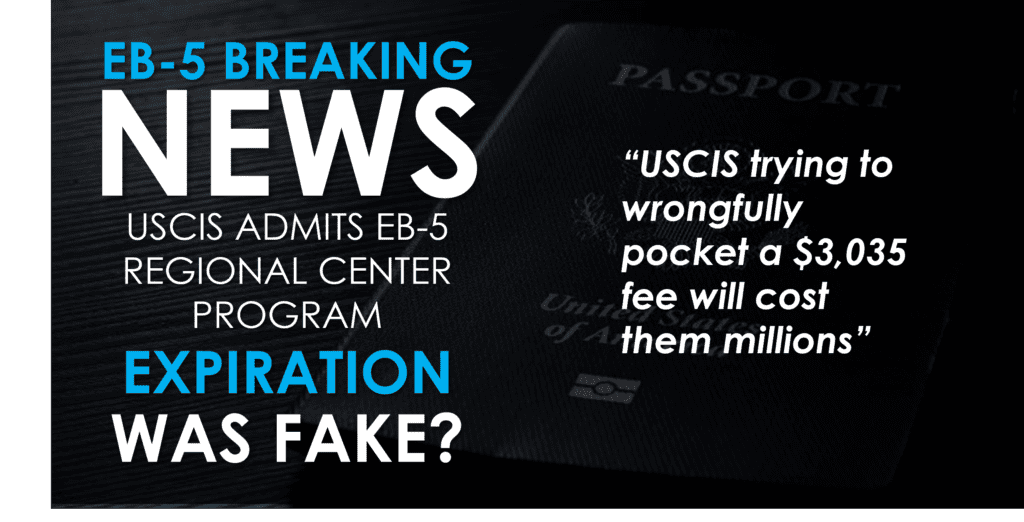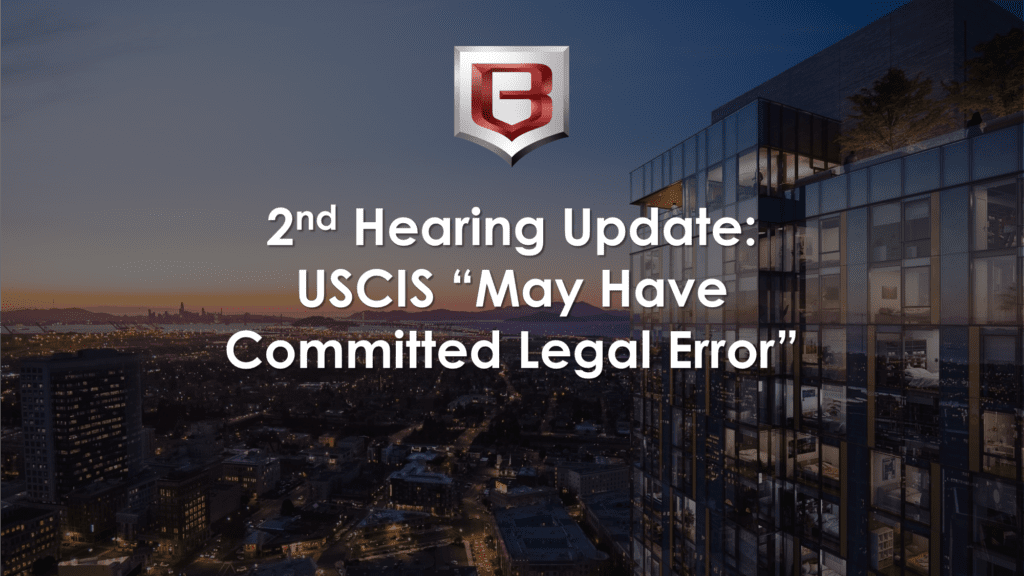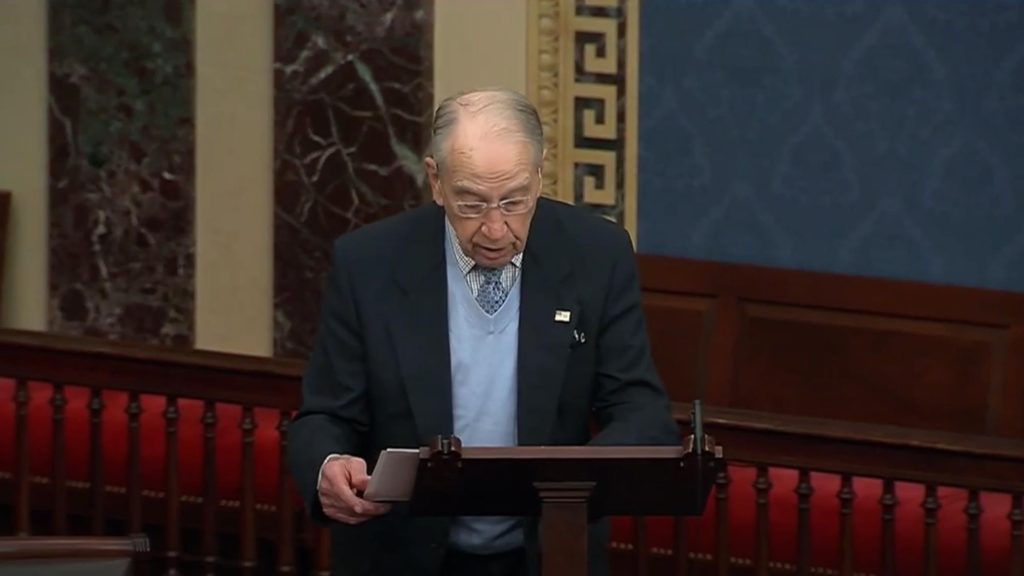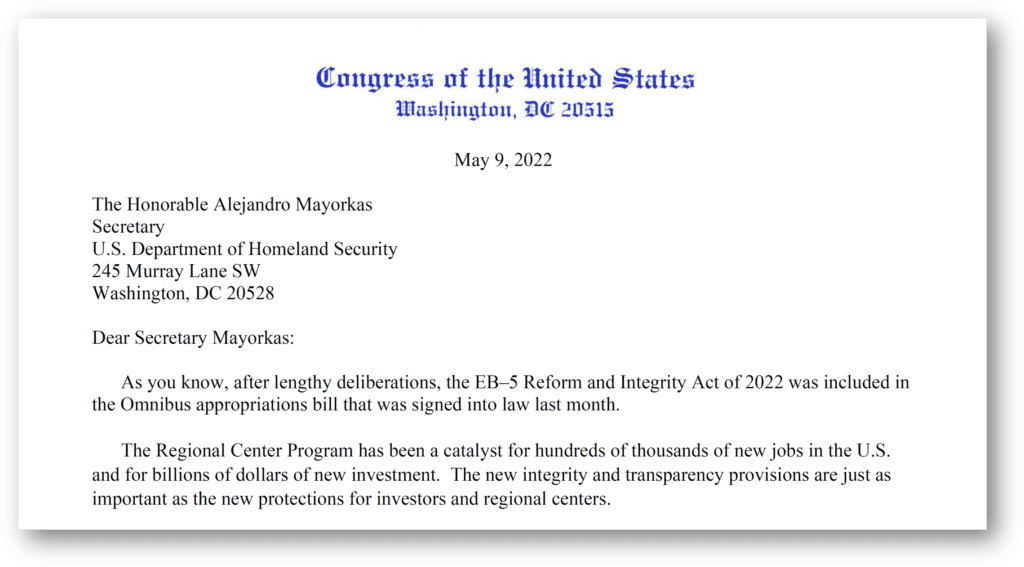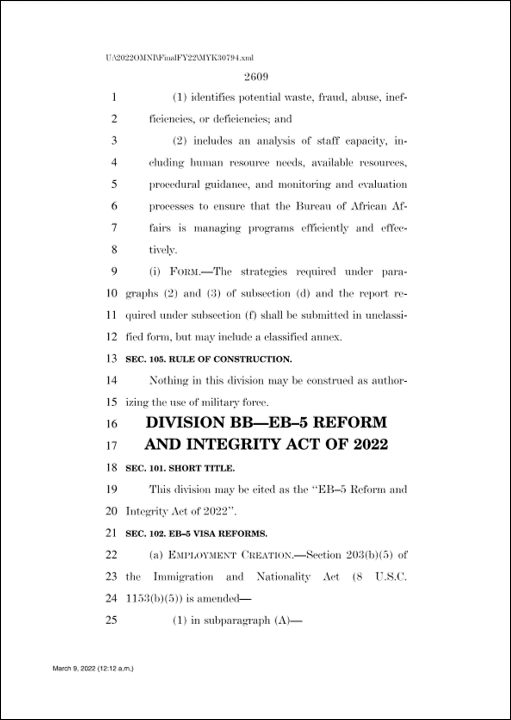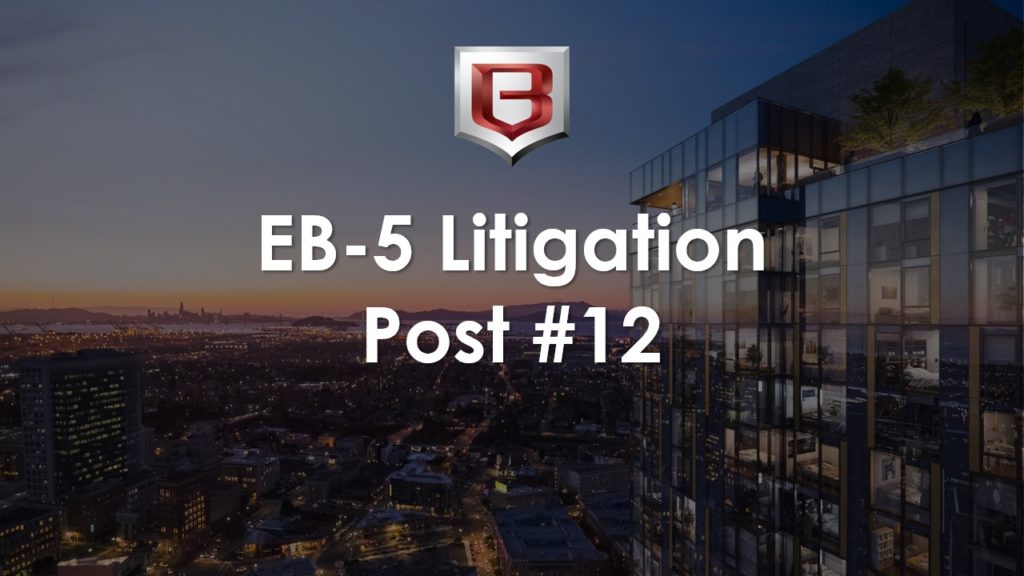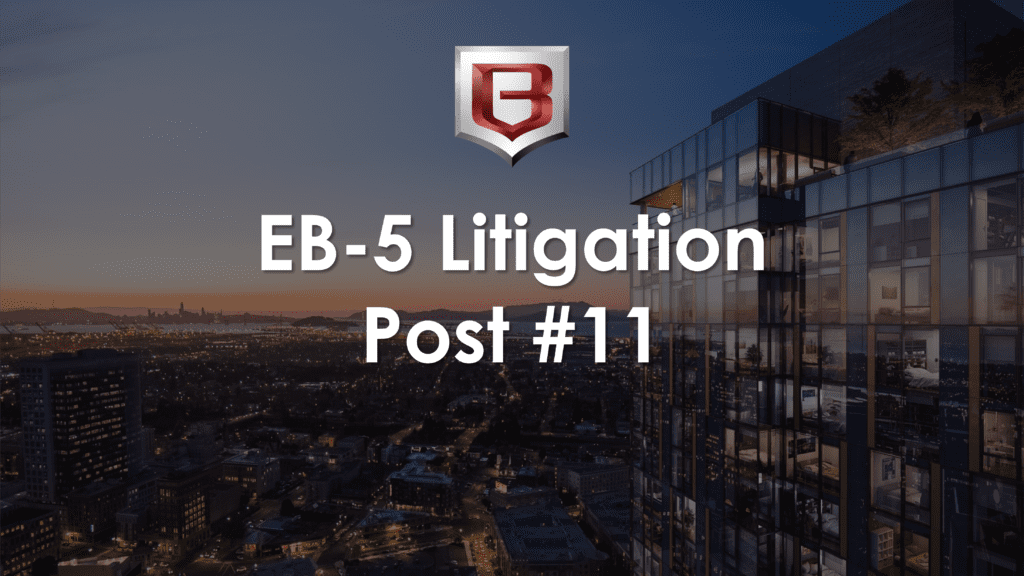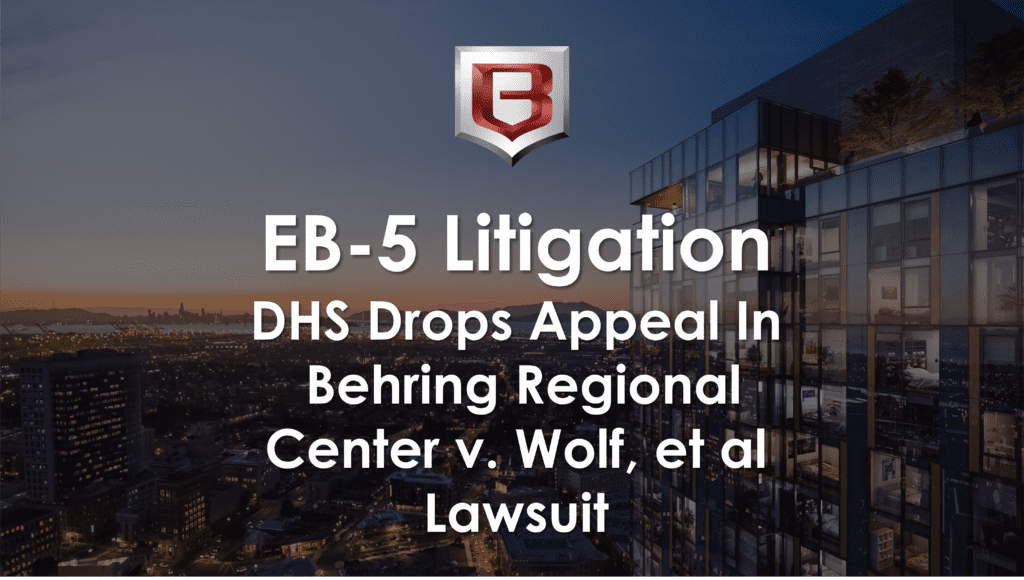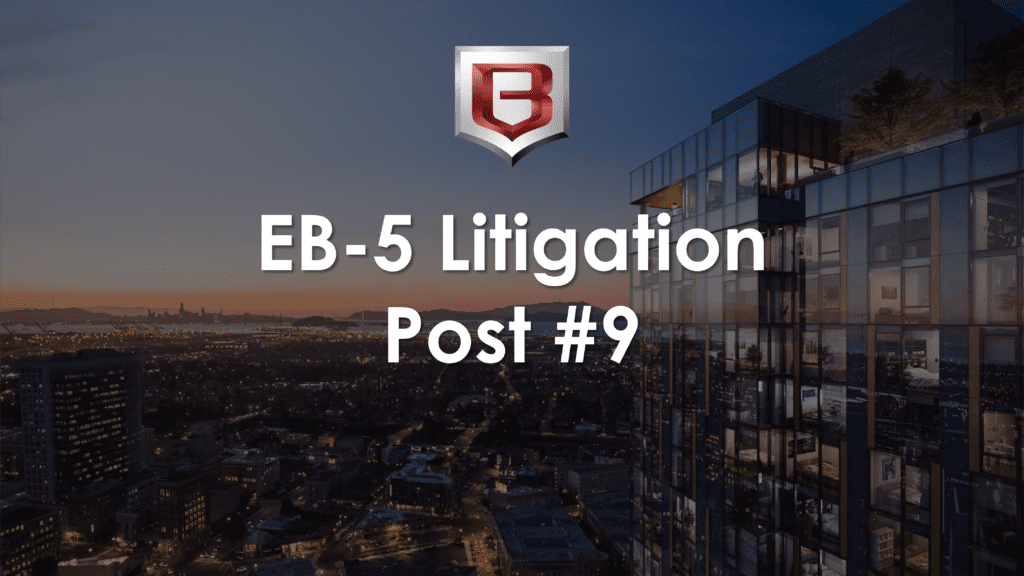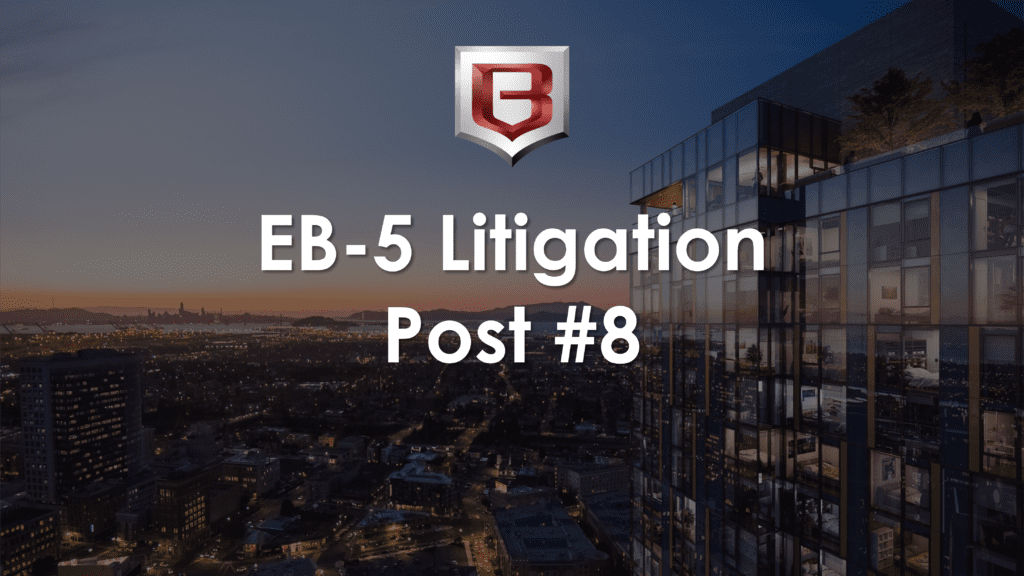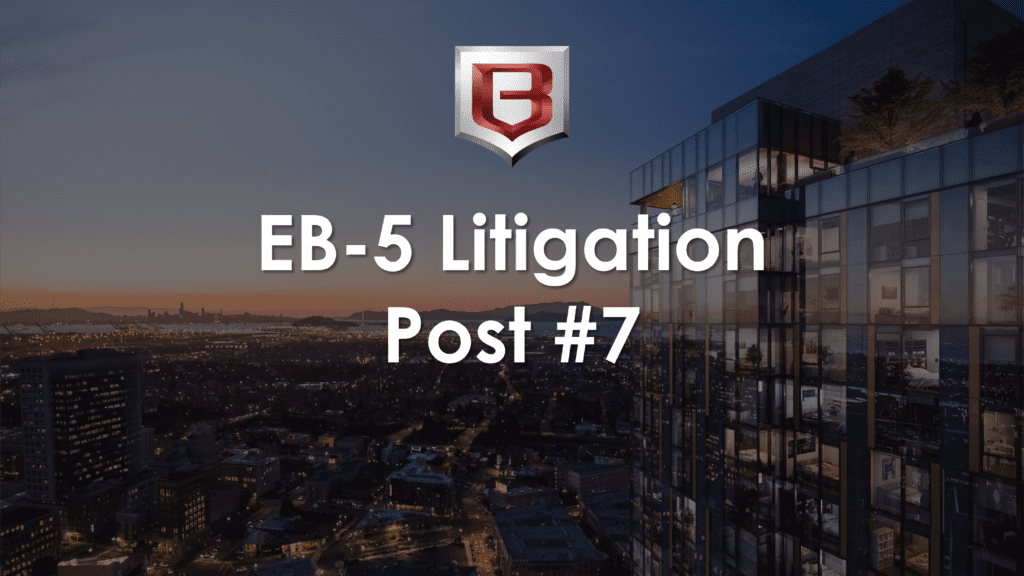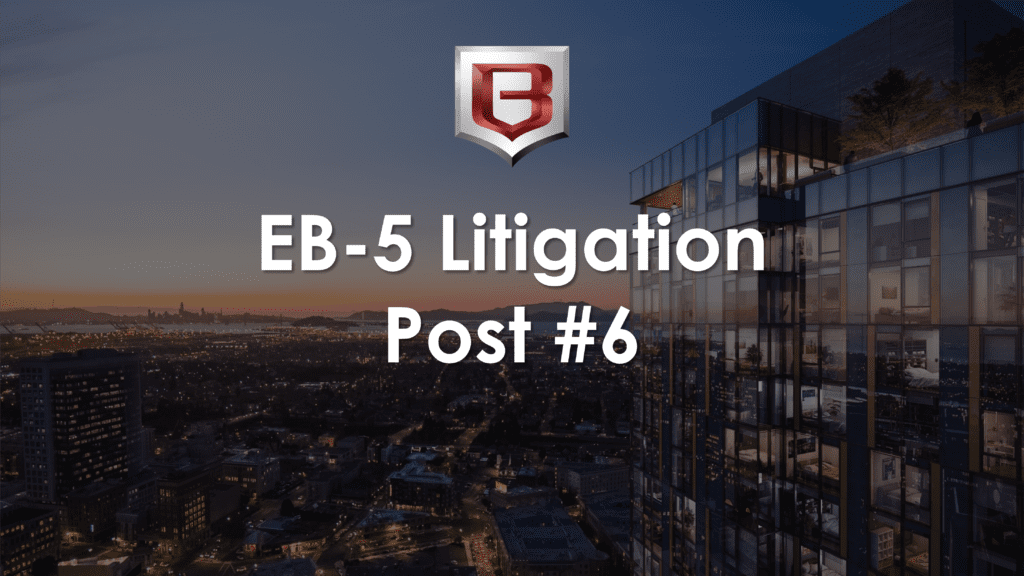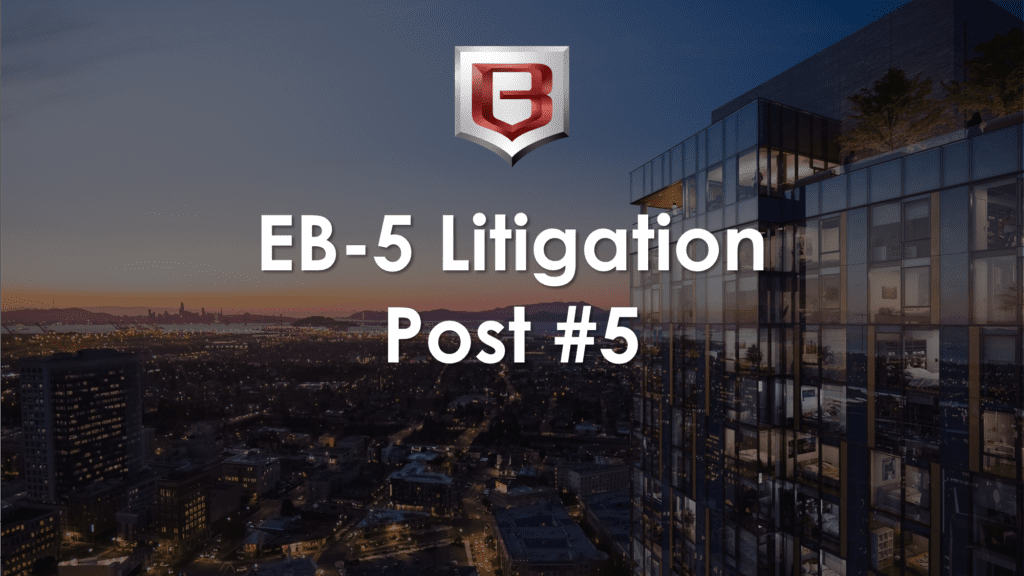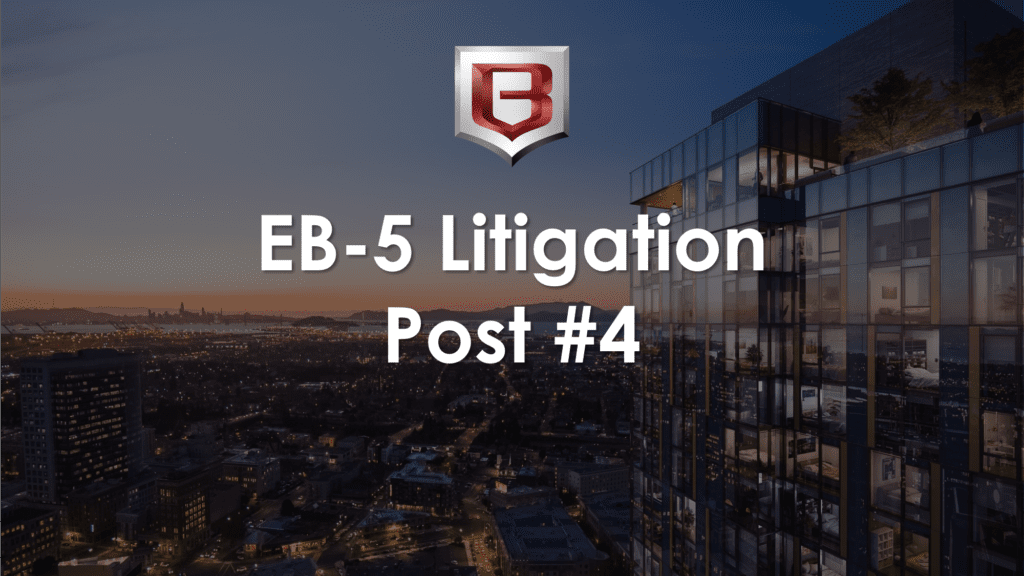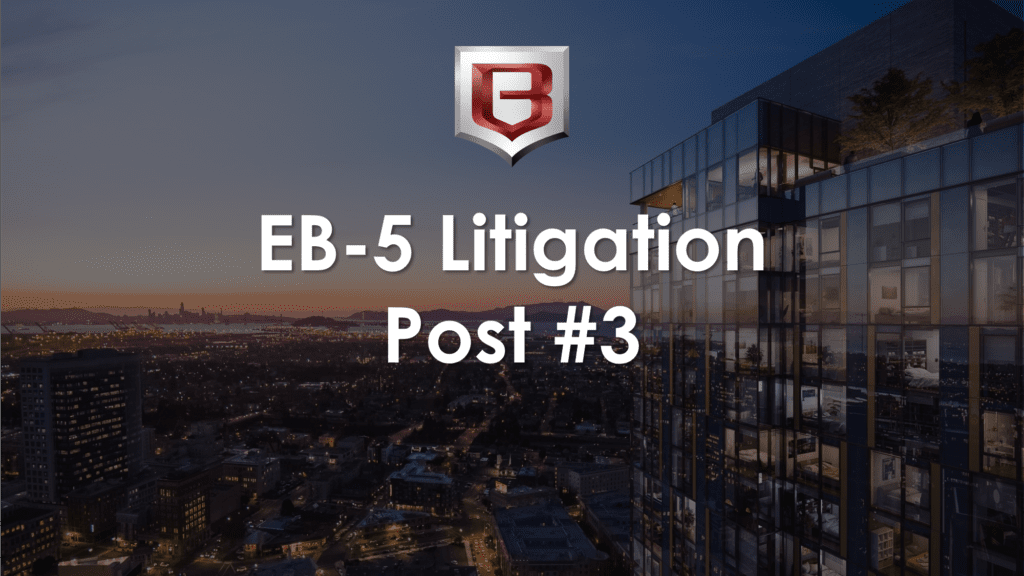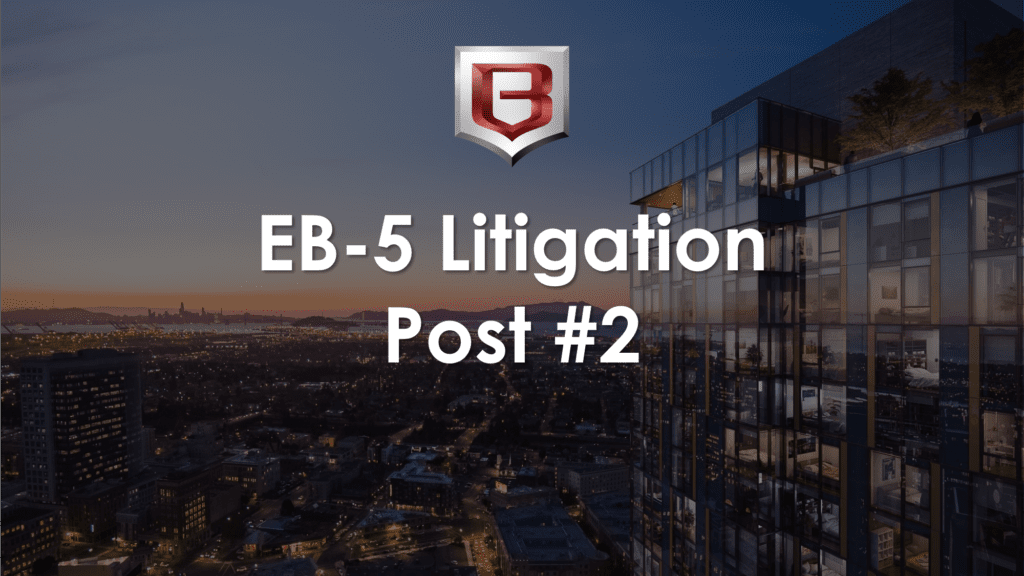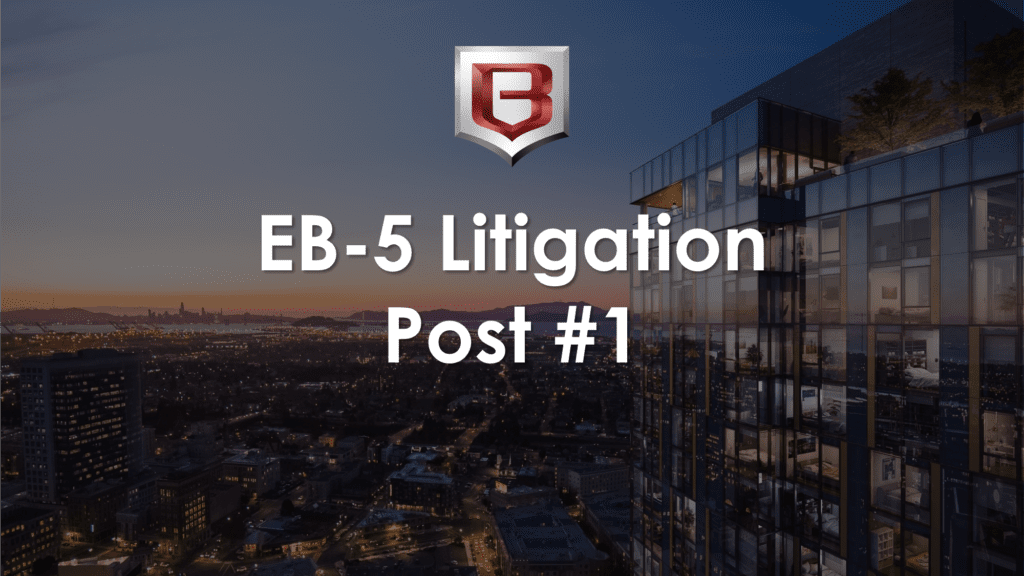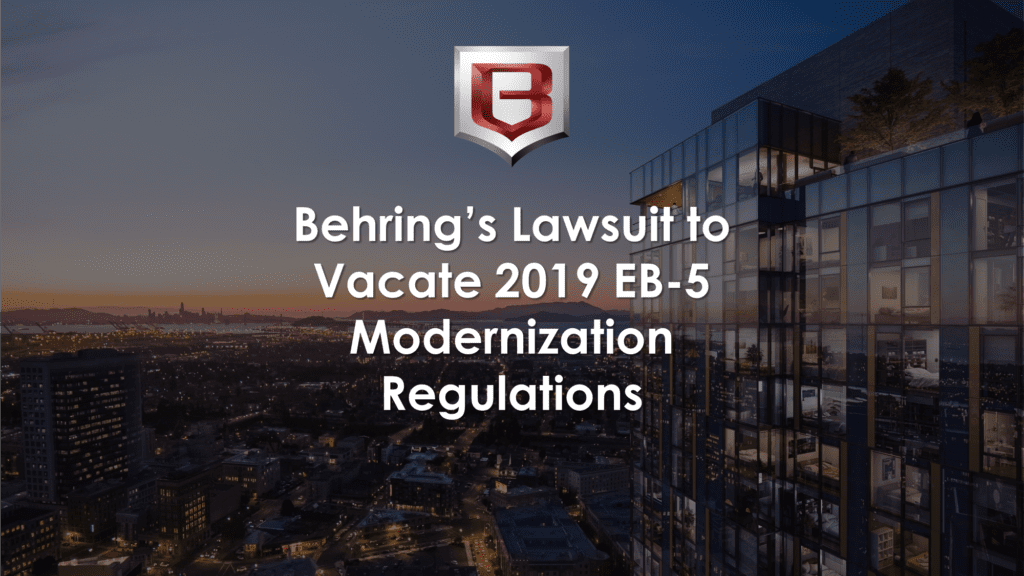Behring Regional Center’s EB-5 Litigation Updates
Get the latest updates straight from the source.
Welcome to Behring’s EB-5 Litigation Updates page. Here, we aim to provide EB-5 stakeholders frequent updates about Behring Regional Center’s litigation against the Department of Homeland Security (DHS), U.S. Citizenship and Immigration Services (USCIS) and the Department of State (DOS), stemming from agency violations of their statutory authority as it relates to the EB-5 Regional Center Program.
Behring views litigation as a last resort, but also a necessary tool to defend the EB-5 industry and new and existing investors from situations where DHS, USCIS and DOS engage in actions that harm the EB-5 Program and its stakeholders.
Behring’s goal, when it has no choice but to file a lawsuit against DHS, USCIS and DOS, is to compel these agencies to do the right thing in implementing a fair, transparent and efficient EB-5 Program.
See all of the EB-5 litigation update posts at the bottom of this page.
Cases
Behring Regional Center v. Wolf, et al. (Dec. 2020) (3:20-cv-09263)
– Behring Won
On June 22, 2021, the U.S. District Court for the Northern District of California ruled in summary judgment that USCIS exceeded its authority in promulgating the EB-5 Modernization Rule that had changed TEA designation rules and increased the investment amounts to $900,000 and $1.8 million. This invalid regulation, implemented in November 2019, essentially caused the EB-5 Program to collapse. Behring’s victory restored the EB-5 Program to the pre-November 2019 requirements, and investors were successfully able to file new EB-5 petitions at $500,000 before USCIS unilaterally terminated the program after June 30, 2021. USCIS initially filed a notice of appeal, but later dropped its appeal.
Behring Regional Center v. Mayorkas, et al. (Feb. 2022) (3:22-cv-01049)
– Voluntarily Dismissed
Behring filed a new lawsuit after USCIS unilaterally refused to accept new regional center-associated I-526 petitions after June 30, 2021. USCIS claimed the program had a sunset date, but Behring exposed USCIS’s error by showing that the statute that originally established the EB-5 Regional Center Pilot Program had no expiration. Instead, it was only the 300 (later 3,000) visa set-aside that was time-limited, leaving USCIS with full authority to issue visas (up to 10,000 per year) to EB-5 regional center-associated I-526 petitions alongside direct investment I-526 petitions. Behring’s lawsuit also put pressure on Congress to pass the EB-5 Integrity and Reform Act of 2022 (“RIA”) when the bill faced significant risk of failure.
Behring voluntarily dismissed its lawsuit because its legal claim was rendered moot by the passage of the RIA. However, in Behring’s third lawsuit, USCIS attorneys admitted in court that authorization for regional centers never expired after June 30, 2021, contradicting its prior stance.
Behring Regional Center v. Mayorkas, et al. (Apr. 2022) (3:22-cv-02487)
– Settled
Behring filed its third lawsuit in April 2022 after USCIS suddenly announced that all approved regional centers prior to the enactment of the EB-5 Integrity and Reform Act of 2022 (RIA) were canceled and are required to have a new Form I-956 approved before new EB-5 investors may file their I-526 petitions. Behring asserted that once again USCIS was exceeding its authority because (1) nowhere in the RIA does it state that pre-approved regional centers are deauthorized; (2) the statute itself contemplates that existing regional centers kept their designation because the RIA provides that I-924 exemplars approved prior to the RIA are still binding on future EB-5 petitions; and (3) USCIS failed to conduct proper notice and comment rulemaking for the new Forms I-956, 956F, and I-956H. Congress sent 2 letters to USCIS, blunting stating that USCIS was wrong and acting contrary to what they intended when it passed the RIA.
Behring sought a preliminary injunction to stop USCIS from deauthorizing regional centers and preventing Behring from being able to have new investors file their I-526 petitions. The court held its second hearing for this case on June 2, 2022. There, the court stated that USCIS “may have committed legal error” in assuming the RIA deauthorized existing regional centers. The court then asked for the parties to file supplemental briefs on what remedy to provide Behring Regional Center.
In August 2022, Behring Regional Center and other industry plaintiffs entered into a settlement agreement with USCIS agreeing to reauthorize all existing regional centers approved prior to the EB-5 Reform and Integrity Act (“RIA”) passed in March 2022. The parties filed the settlement agreement on August 24th, 2022, and the court approved the settlement in September 2022. This settlement agreement brought Behring’s lawsuit to a successful conclusion and enabled EB-5 investors to begin filing once again.
Join Our Mailing List to Get Updates
Please fill in the form below to subscribe to our mailing to be notified when new EB-5 litigation blog articles are released.
"*" indicates required fields


